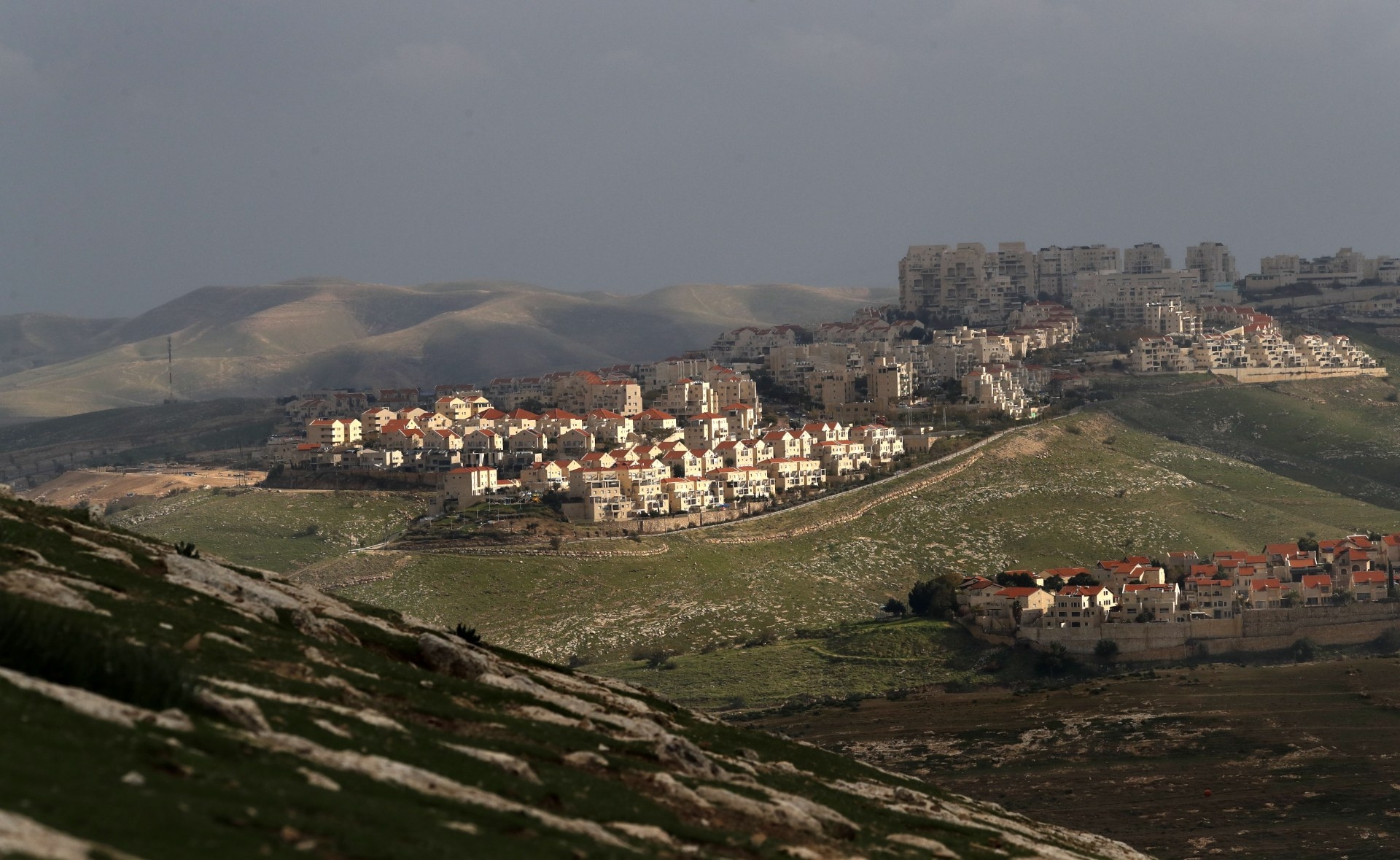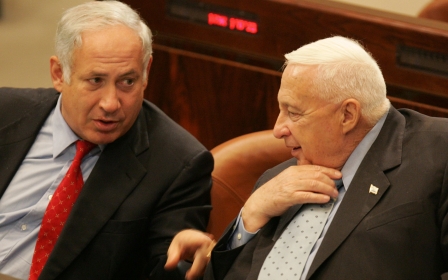Israel to begin annexation with three settlement blocs, says report

Israeli Prime Minister Benjamin Netanyahu will begin annexing parts of the occupied Palestinian West Bank with three large illegal settlements, with the Jordan Valley to come later, according to local media.
Netanyahu vowed in September that he would annex the Jordan Valley, forcibly claiming the territory as part of Israel, and revealed a map of 30 illegal Israeli settlements north of the Dead Sea that would be integrated into Israel as part of his plan.
However, according to the Times of Israel, Netanyahu has told settler leaders that the areas in which there are no settlements “have to wait” until an Israeli mapping committee finalises a precise outline of the annexation plan.
Only three major Israeli settlement blocs - Maale Adumim in occupied East Jerusalem, Ariel in north of the West Bank and Gush Etzion near the cities of Bethlehem and Hebron, areas which do not require precise mapping - will be annexed on 1 July, according to anonymous officials who spoke to the Times of Israel.
Israeli officials believe these areas would “avoid some friction with Jordan, which the US is said to be concerned about”, reported the Times of Israel. Jordan's King Abdullah warned last month that Israeli annexation could lead to "massive conflict" and a tearing up of his kingdom's Wadi Araba of 1994 peace treaty with Israel.
New MEE newsletter: Jerusalem Dispatch
Sign up to get the latest insights and analysis on Israel-Palestine, alongside Turkey Unpacked and other MEE newsletters
The Jordan Valley and the area north of the Dead Sea are parts of the West Bank, which Israel has occupied since the 1967 Arab-Israeli war, and it is a highly strategic area rich in minerals and agricultural soil that lies along the Jordanian border.
Israel's planned annexation of the Jordan Valley: Why it matters
+ Show - HideThe annexation of the Jordan Valley could effectively kill whatever hopes remain for a two-state solution to the Israel-Palestine conflict as it would render completely impossible the establishment of a viable, contiguous Palestinian state.
In April, Prime Minister Benjamin Netanyahu reached an agreement with his rival Benny Gantz to form a unity government that seek to impose Israeli sovereignty over the Jordan Valley. Legislature could be discussed from 1 July.
The Jordan Valley accounts for around one-third of the occupied West Bank (almost 2,400 square kilometres), where 30 Israeli agricultural settlements house around 11,000 settlers.
Some 56,000 Palestinians also reside in the Jordan Valley, including in the city of Jericho, where their daily lives are deeply impacted by Israeli occupation policies.
The area is rich in minerals and agricultural soil and is a highly strategic area, as it lies along the Jordanian border.
Jordan, the Palestinian Authority in Ramallah, and senior officials in the European Union openly oppose the annexation plan, while the administration of US President Donald Trump has encouraged such moves.
It is thought, however, that Washington has long acknowledged that Israel would claim the settlements around Jerusalem and Ariel in any outcome, be that unilateral Israeli moves or a negotiated settlement with the Palestinians.
For Palestinians such a move would be no less disastrous. Annexing Maale Adumim and Gush Etzion would help sever the West Bank from East Jerusalem, also occupied in 1967.
Not only would that distance Palestinians in the West Bank from the holy city, it would impede the Palestinian aspiration to have an independent state with East Jerusalem as its capital.
Israeli officials told the Times of Israel that this “limited annexation” is a first step that allows Netanyhau to take it unilaterally with the approval of his coalition partner Benny Gantz and settler leaders.
In April, Netanyahu reached an agreement with his former rival Gantz to form a coalition government that would advance an annexation plan from 1 July.
In January, the US President Donald Trump unveiled his full Israel-Palestine plan which proposed for Israel to claim about a third of the West Bank in exchange for the recognition of a disjointed Palestinian state with no control over its borders or airspace.
To date, more than 600,000 Israeli settlers live in sprawling settlements and outposts in Israeli-controlled Area C, often in confrontational proximity to the three million Palestinians living in the West Bank and East Jerusalem.
The proposed annexations have been slammed by the Palestinians, and opposed by much of the international community, including the United Nations.
German concerns
Germany's Foreign Minister Heiko Maas said on Wednesday that his country has "serious concerns... about the possible consequences of such a step", during a joint media conference in Jerusalem with his Israeli counterpart Gabi Ashkenazi.
"Together with the European Union, we believe that annexation would not be compatible with international law," Maas said.
The European Union has yet to formalise a clear position on the planned annexation.
"I don't think much of the politics of issuing threats at a stage when no decision has been taken yet by Israel," Maas said.
Ashkenazi, meanwhile, said the annexation plan will be compatible with Trump's initiative, while mainatining Israel's peace treaties with Jordan and the PA.
Middle East Eye delivers independent and unrivalled coverage and analysis of the Middle East, North Africa and beyond. To learn more about republishing this content and the associated fees, please fill out this form. More about MEE can be found here.





